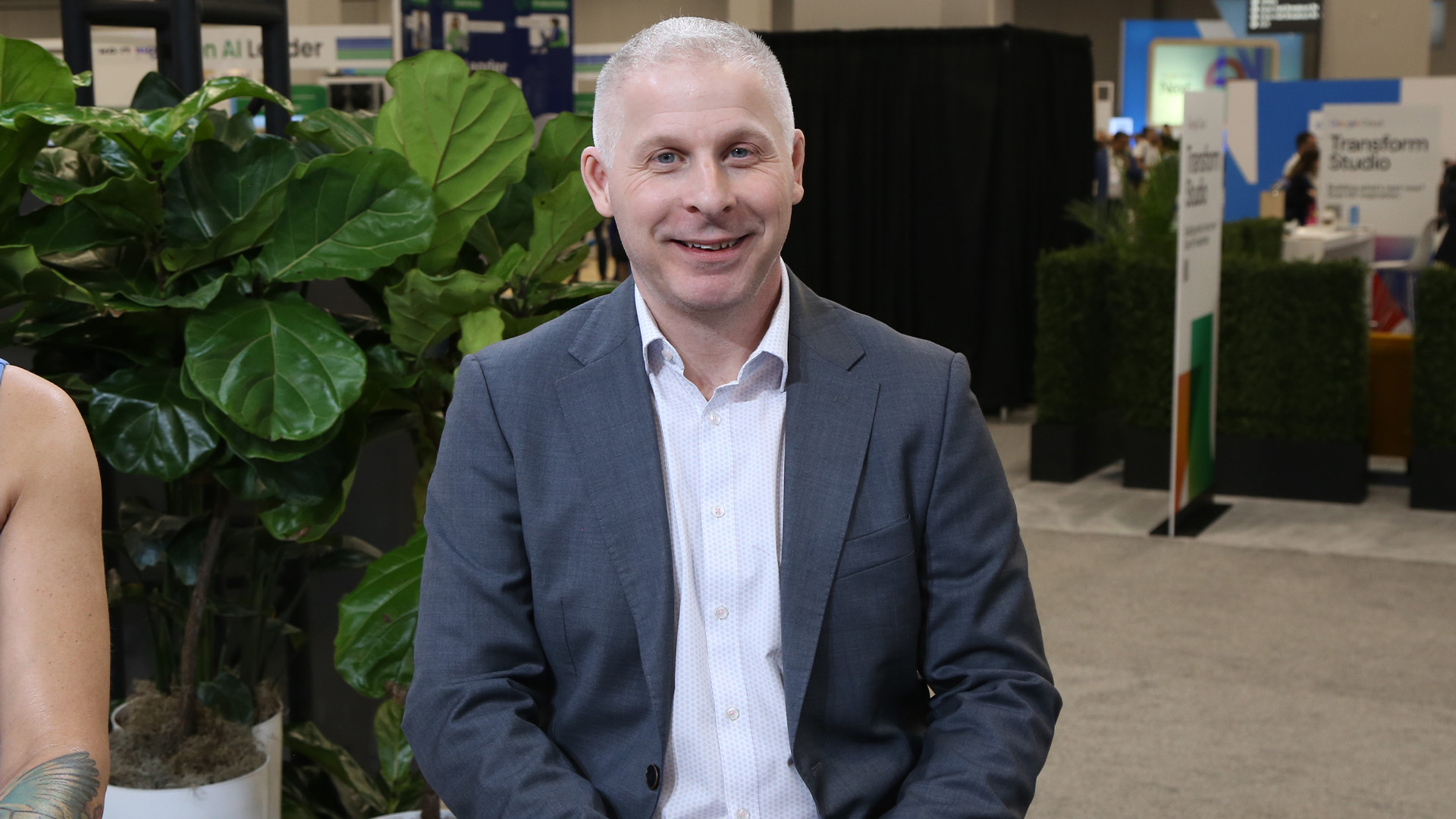 AI
AI
 AI
AI
 AI
AI
Now that the generative artificial intelligence revolution is in full swing, affecting everything from data engineering to code development, analysts are beginning to fear that the gen AI adoption bubble will pop.
“Most CIOs made the mistake, and especially in the cloud world, of saying, I’m cloud first. I’m cloud only … they put all their eggs in a single basket. [The] gen AI mistake will be putting all your eggs in a single basket,” said Paul Lewis (pictured), chief technology officer of Pythian Services Inc., who compared the AI wave to the rise of cloud computing. “You want to go where there’s options. So, go to a model garden that has 30, 50 models, because I want to be able to use different models over time. They will get better over time.”
Lewis spoke with theCUBE Research analysts John Furrier, Savannah Peterson and Rob Strechay at Google Cloud Next 2024, during an exclusive broadcast on theCUBE, SiliconANGLE Media’s livestreaming studio. They discussed what it takes to implement gen AI and the corresponding evolution of database administration. (* Disclosure below.)
Pythian partners with Google Cloud to deliver data and cloud services and is assisting businesses with integrating AI. Since the last Google Cloud Next event, the focus has shifted from AI applications to AI agents, according to Lewis, who emphasized that most initial implementation will be internal.
“The very first set of use cases is code assist,” he said. “Number two is productivity to a workspace. Let me draft an email, let me draft a document, let’s do an image — those are kind of the easy out of the box ones.”
Although the future of gen AI looks bright, broader integration will be more complex, believes Lewis, especially when it comes to the world of database administration and analytics.
“[AI] will be big … I believe it will be revolutionary beyond cloud in terms of its actual impact in the business,” he said. “The reality is there’s a bunch of prerequisites still there. I don’t have all of my knowledge bases in a single entity, or at least not accessible by a gen AI model. I have databases at the edge in multiple data centers, in multiple clouds, in multiple SaaS products to which I can’t even get the data out of. That’s a problem.”
Organizing a company’s data is complicated by security requirements, especially as governments put more guardrails in place for AI. The role of a database administrator is already changing in response to the needs of large language models, according to Lewis.
“We have 500 DBAs, and we see it in real time — this evolution of skillset,” Lewis said. “They need to have multiple roles. They need to be worried about getting data in. So, they need to be data engineers.”
Looking into the future, Pythian aims to help companies ready their databases by following three pillars of AI adoption, with an eye toward maximizing the technology’s potential.
“We want to make sure they’re accessible, we want to make sure that they’re enabled and we want to make sure that they’re securely governed,” Lewis said. “Digital transformation used to be just monetized data. Now it’s monetized data actually creat[ing] new interaction. That requires gen AI.”
Here’s the complete video interview, part of SiliconANGLE’s and theCUBE Research’s coverage of Google Cloud Next 2024:
(* Disclosure: Pythian Services Inc. sponsored this segment of theCUBE. Neither Pythian nor other sponsors have editorial control over content on theCUBE or SiliconANGLE.)
Support our open free content by sharing and engaging with our content and community.
Where Technology Leaders Connect, Share Intelligence & Create Opportunities
SiliconANGLE Media is a recognized leader in digital media innovation serving innovative audiences and brands, bringing together cutting-edge technology, influential content, strategic insights and real-time audience engagement. As the parent company of SiliconANGLE, theCUBE Network, theCUBE Research, CUBE365, theCUBE AI and theCUBE SuperStudios — such as those established in Silicon Valley and the New York Stock Exchange (NYSE) — SiliconANGLE Media operates at the intersection of media, technology, and AI. .
Founded by tech visionaries John Furrier and Dave Vellante, SiliconANGLE Media has built a powerful ecosystem of industry-leading digital media brands, with a reach of 15+ million elite tech professionals. The company’s new, proprietary theCUBE AI Video cloud is breaking ground in audience interaction, leveraging theCUBEai.com neural network to help technology companies make data-driven decisions and stay at the forefront of industry conversations.